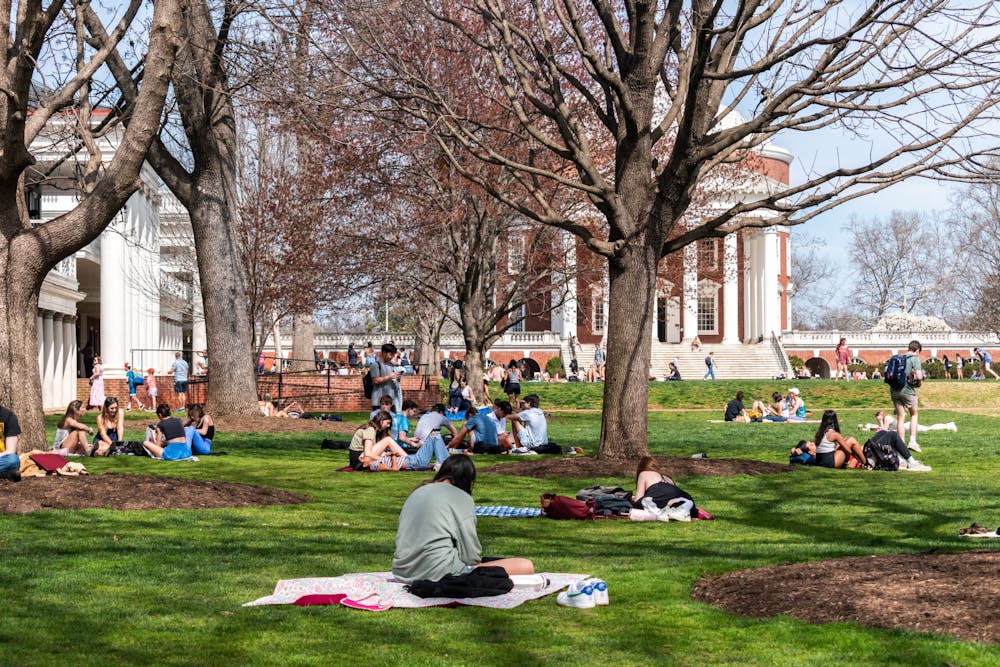A skyrocketing median age of the House of Representatives and Senate. Elderly senators who freeze when answering questions. Increasing numbers of officials who die in office. And, of course, the upcoming presidential election which, until a month ago, boasted the two oldest nominees in history. All of this has called to attention a shared characteristic shared amongst the greater part of America’s politicians — old age. While President Joe Biden’s withdrawal presents a solution to the most immediate age concerns, former President Trump’s age alongside many in Congress remain a disappointing presence that is hard for young voters to process. As a college campus with many students being first-time voters, the age of our national politicians should not only disappoint us but also galvanize us to support local democratic systems that energize a new political generation — namely the University’s student self-governance system.
Student self-governance at the University is a system founded for and by students. Intended to prepare them for larger democratic systems, student self-governance directly empowers young people by demonstrating the impact of their vote at a localized level and preparing the next generation of citizen-leaders. In fact, the University’s system embodies the ideal foundation for local politics. With no barriers to running and a smaller, more accessible constituency, the University provides a diverse democratic process that energizes competent political practice. Even if a student is simply discussing a referendum with a friend or reading through The Cavalier Daily’s endorsements, they are building a habit of active and critical engagement with politics which deliberately supports representative democracy. The democratic capacities developed by student involvement in smaller elections directly translate into greater representation in local, state and national elections in the future.
However, while the theory of student self-governance is radical, turnout in elections points to an unfortunate lack of student involvement. Consider the 2024 Student Council Presidential election — the winning candidate only earned 13.5 percent of the student body’s vote or approximately 3,500 of 26,000 eligible voters. This election is proof that the self-governance system struggles to translate its importance into tangible action, and that students fail to recognize how these institutions can create impactful change. The issue of disengagement between student candidates and student voters parallels that of disengagement between youth voters and significantly older candidates at the national political level.
Nationally, state elections have similarly struggled to maintain significant youth voter turnout for congressional seats. While the reasons for voter apathy both locally and nationally are numerous, this disengagement ultimately reflects systemically low feelings of representation in politics at large. Yet, how do students and voters expect their candidates to adequately represent them and enact change if they fail to engage them?
Student self-governance elections, and to a greater extent local politics, are the ideal landscape to inculcate change in voting behavior. Nationally, many young voters worry that older candidates do not adequately represent them or their views, nullifying their vote. However, this challenge could not be further removed from the ethos of student elections — student politicians are directly representative of their peers. Therefore, students cannot fall back on that same argument to justify not voting in their own local elections. There is nothing to lose and hundreds of beneficial policies to support in voting for University elections. As such, students must be reminded that apathetic voting behaviors at the University level not only translate to apathy at the national level, but also produce the conditions which reinforce these same, ridiculously old politicians.
Unengaged youth voters inherently cannot produce age-representative candidates. More input in the University-wide system will develop political habits that will, in turn, facilitate better age — as well as class, ideological and racial — representation at a national level. Significantly older candidates and politicians pose a specific challenge to the voting habits of the youth. Luckily, engagement with the student self-governance system represents the exact solution because young voters energized by local elections beget candidates and politicians more representative of their exact political interests.
The founder of the University, President Thomas Jefferson, preached the importance of young and middle-aged politicians who competently and equitably represent people of all ages — not just those eligible for retirement benefits. Recognizing the unprecedented times of the upcoming presidential election, students at this University must take the time to be civically engaged at all levels. Disappointment with candidates should not fan the flames of inaction when the University’s student self-governance system presents the ideal opportunity for change within our community and beyond. Though it is past time for Congress to begin considering legislation that grapples with federal gerontocracy, students at the University have the ability to forge a new generation of young, competent voters and politicians through our unique system of student self-governance.
Scarlett Sullivan is a senior associate opinion editor who writes about politics for The Cavalier Daily. She can be reached at opinion@cavalierdaily.com.
The opinions expressed in this column are not necessarily those of The Cavalier Daily. Columns represent the views of the authors alone.







